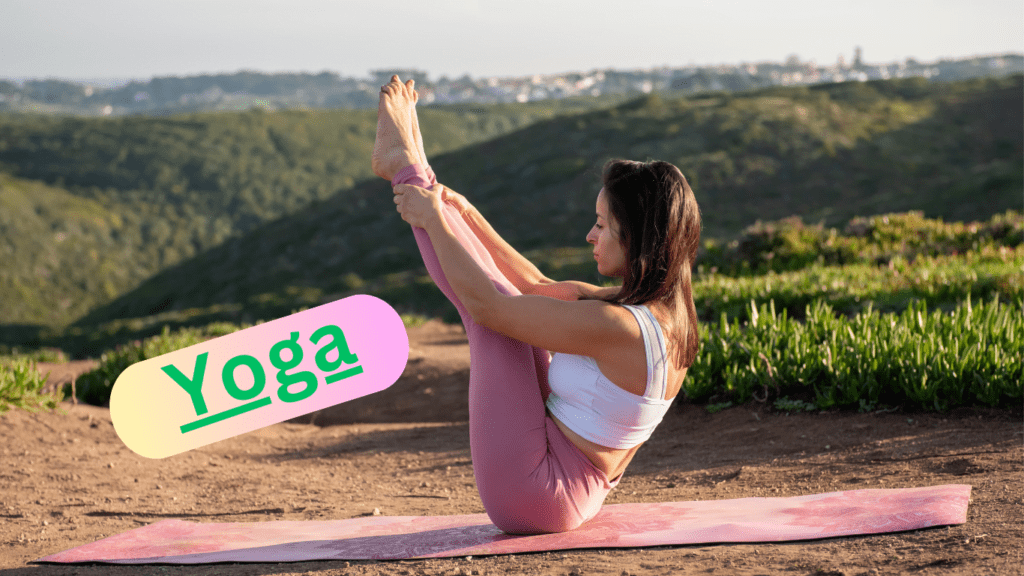
Explore the profound benefits of yoga for healthy aging and discover how incorporating a regular yoga practice can support vitality, flexibility, and overall well-being.
How to incorporate yoga into your routine to stay young?
Aging is a natural part of life, and many individuals are seeking ways to age gracefully while maintaining their vitality and well-being. Yoga, an ancient practice that combines physical postures, breathing exercises, and meditation, offers numerous benefits for healthy aging. Regular yoga practice can help improve flexibility, balance, strength, and mental clarity, ultimately contributing to a more vibrant and youthful life. In this article, we will delve into the ways in which yoga can support healthy aging and provide insights on how to incorporate yoga into your routine to stay young at heart.
The Benefits of Yoga for Healthy Aging
Yoga offers a wide range of benefits for individuals of all ages, but it can be particularly impactful for those navigating the aging process. Some of the key benefits of yoga for healthy aging include:
Improved Flexibility: As we age, our muscles and joints can become stiff and less flexible. Regular yoga practice helps improve flexibility, making daily movements easier and reducing the risk of injury.
Increased Strength: Yoga involves holding various poses that engage and strengthen different muscle groups. Building strength through yoga helps maintain muscle mass, bone density, and overall physical function as we age.
Enhanced Balance and Stability: Aging often comes with a higher risk of falls and balance-related issues. Yoga poses that focus on balance and stability help improve proprioception and reduce the risk of falls, promoting confidence and independence.
Stress Reduction: Stress can have detrimental effects on both physical and mental well-being. Yoga incorporates mindful breathing techniques and relaxation practices that promote stress reduction and emotional balance, contributing to overall wellness.
Mental Clarity and Focus: Yoga involves mindful movement and breath awareness, which can help improve mental clarity, concentration, and focus. This can be particularly beneficial as we age and aim to maintain cognitive function and mental acuity.

Incorporating Yoga into Your Aging Journey
If you’re interested in reaping the benefits of yoga for healthy aging, here are some tips to help you incorporate yoga into your routine:
Start Slow and Listen to Your Body: It’s important to honor your body’s unique needs and limitations. Begin with gentle yoga classes or modified poses that suit your level of flexibility and strength. Gradually increase the intensity and duration of your practice as you become more comfortable.
Find a Qualified Instructor: Working with a qualified yoga instructor who has experience with older adults can help ensure proper alignment and safety during your practice. They can provide modifications and offer guidance tailored to your specific needs.
Choose Age-Appropriate Classes: Look for yoga classes specifically designed for older adults or classes that focus on gentle, restorative, or chair yoga. These classes often cater to the needs of aging bodies and provide modifications suitable for different levels of mobility.
Cultivate a Consistent Practice: Consistency is key when it comes to reaping the benefits of yoga. Aim to incorporate yoga into your routine at least a few times per week, even if it’s for short sessions. Consistency will help you build strength, flexibility, and mental resilience over time.
Embrace the Mind-Body Connection: Yoga is not just about physical exercise; it is a holistic practice that integrates the mind, body, and breath. Embrace the mindfulness aspect of yoga, focusing on breath awareness and cultivating a sense of inner calm and self-acceptance.
FAQs
Q: Is yoga suitable for all ages?
Q: Can yoga help with age-related joint pain and stiffness?
Q: Can I practice yoga if I have certain health conditions or injuries?
Yoga offers a wealth of benefits for healthy aging, including improved flexibility, strength, balance, stress reduction, and mental clarity. By incorporating yoga into your daily routine, you can stay young at heart and enhance your overall well-being as you navigate the aging process. Start with gentle and age-appropriate classes, listen to your body, and cultivate a consistent practice. Embrace the mind-body connection that yoga offers and enjoy the transformative effects it can have on your physical, mental, and emotional health. Embrace the journey of yoga and discover how it can support you in staying vibrant, agile, and youthful as you age gracefully.
Namaste!
